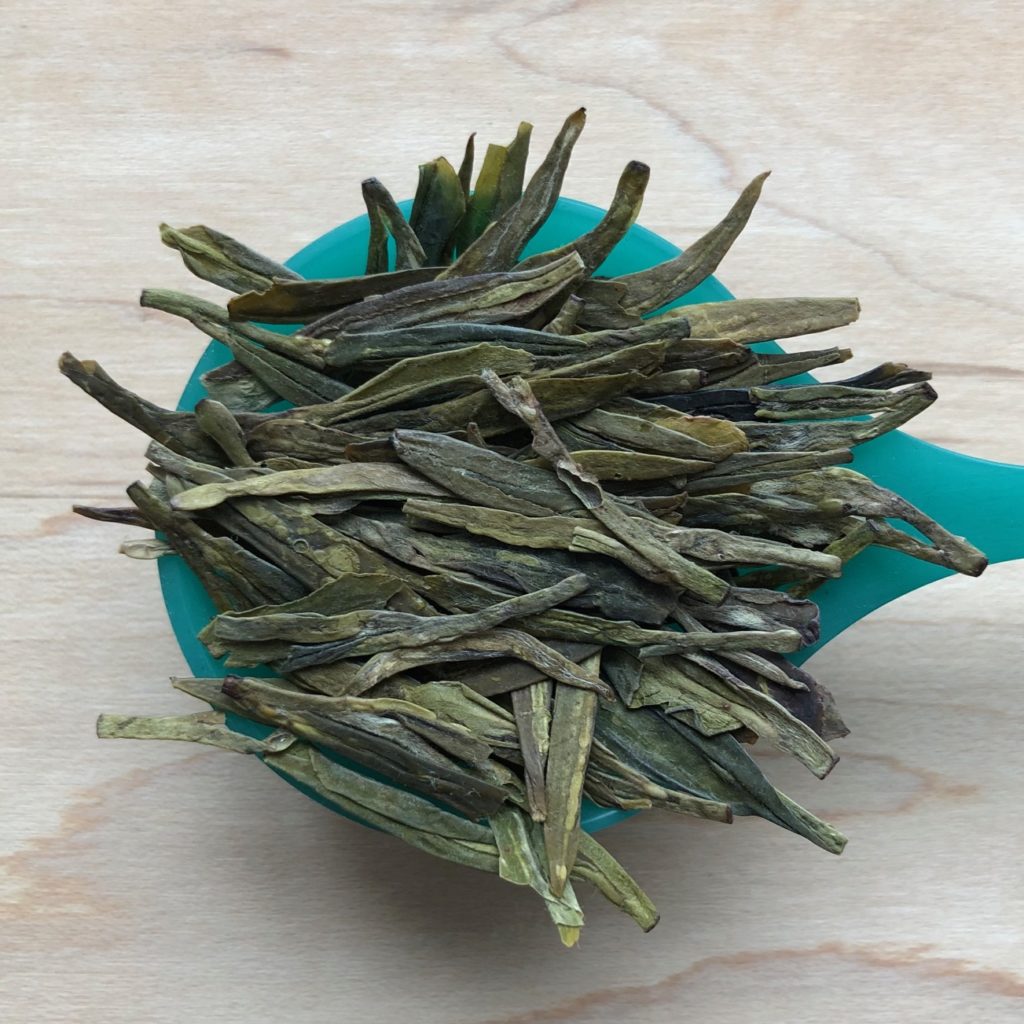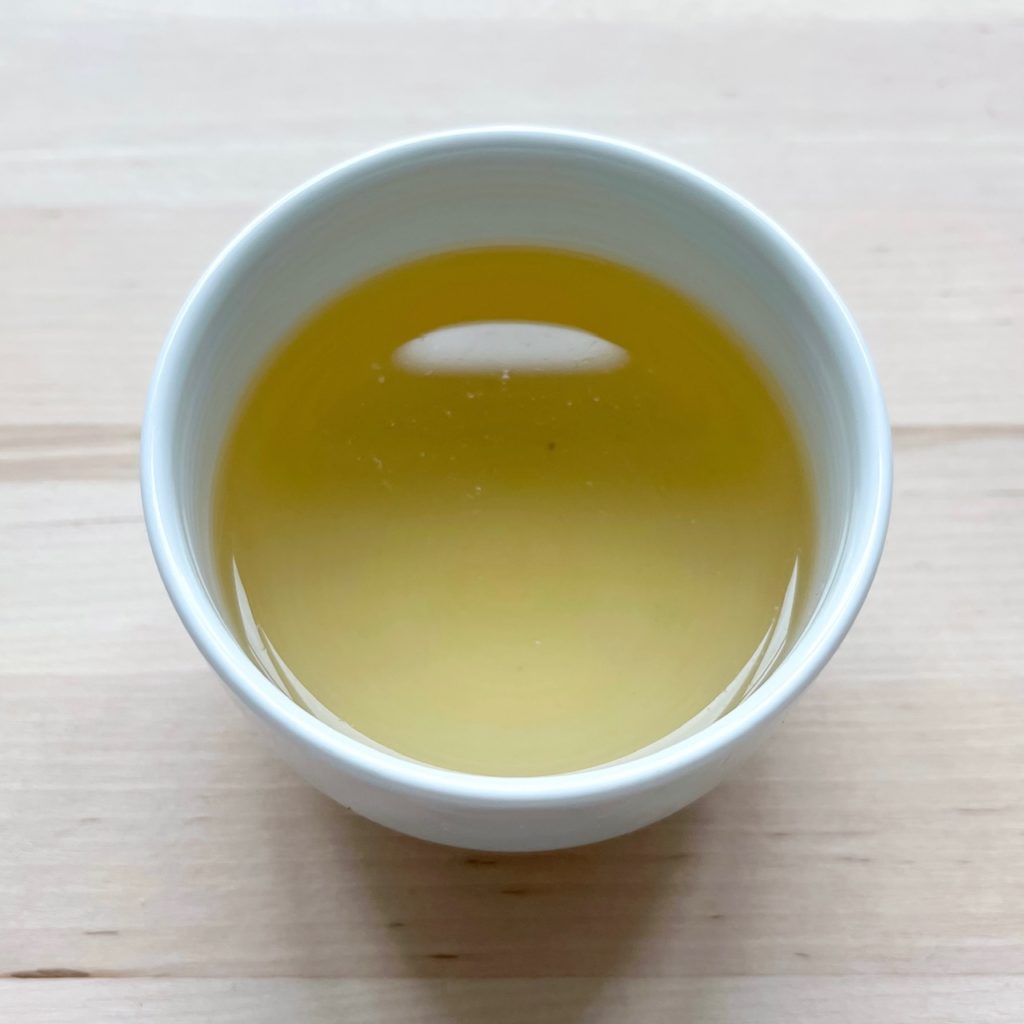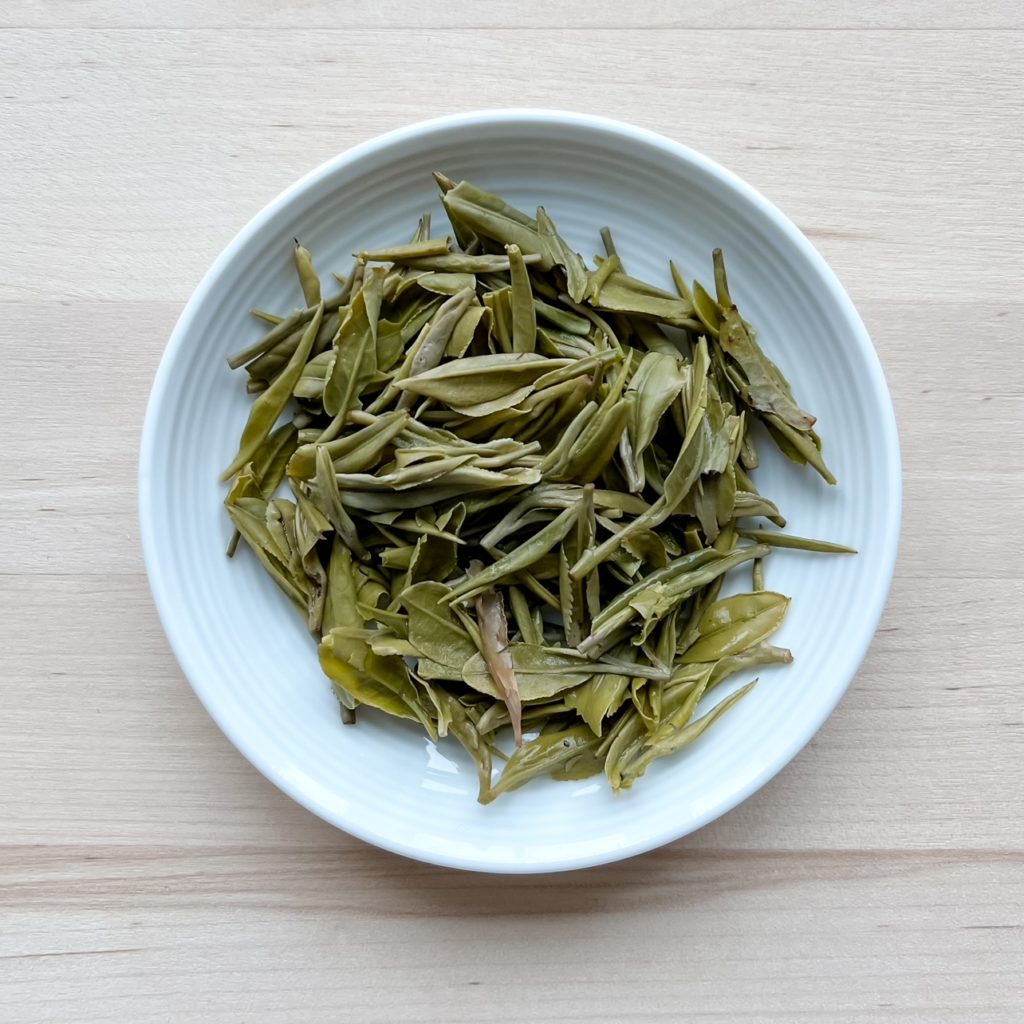
What drew me to this green tea is the name. I wanted to learn more about this “Not Long Jing” tea!
Description: “From the moment you inhale the dry leaf’s aroma, the sweetness of snap peas beckons, creating a delightful experience from start to finish.”
Instructions: 3g | 150 ml | 95°C | 1 1/2 min | 3-4 infusions *
Regarding on storage of my tea: Once I buy a tea, I try not to go to the company website so I don’t influence my tasting sessions. Therefore, I missed the recommendation regarding storing the tea in the refrigerator which can extend its freshness. I stored my tea at room temperature away from heat and sunlight.
Review: The reason this tea is called “Ming Qian Not Long Jing” is because it is produced in the Guizhou province in China rather than Zhejiang province where Long Jing (or Dragon Well) is from. I tend to like Long Jing because of its nutty taste. So, I was interested to see how this “Not Long Jing” would taste. This is also an aged green tea as it was harvested in March 2020.
The olive green leaves had a flat needle shape like typical Long Jings. It smelled like a forest, damp grass, and a distant campfire. Due to being pan-fried, the tea had a nice satin texture.
Another note that I want to bring up is that the steeping parameters were different on the packaging compared to the website. *The above recommendations are from the website which listed 95°C, whereas the package listed 90°C. I tried both temperatures and found I preferred the higher one. Normally, I would stick to one recommendation, however, I decided to mix and match steeping parameters from the website and the packaging. Rather than outlining each combination, I am sharing the steeping parameters I preferred the most: 95°C (from the website) and 1 minute (from the packaging).

Infusion 1 (1 minute): After brewing the tea, the pale yellow colour liquor had a pine and roasted smell. It was slightly cloudy from the fine hairs from the leaves. The taste was grassy and vegetal and had a lingering chestnut taste in the mouth. The tea reminded me of Kyoto Obubu Tea Farms’ Kabuse Sencha (where I was an intern!).
Infusion 2 (1 minute and 15 seconds): The vegetal taste was more pronounced and sharper and reminded me of spinach and peas. A roasted note appeared at the end of the sip.
Infusion 3 (1 minute and 30 seconds): The flavour of the tea started to wane, but it still had a wheatgrass and roasted nutty taste. Astringency and bitterness also developed at the back of the throat.
Infusion 4 (1 minute and 45 seconds): When hot, the flavour was hard to decipher, however, when the liquor cooled, it had more of a roasted note but also more astringency.

The wet leaves were a mostly unified khaki colour and the picking of the tea was a leaf and a bud. The leaves had a vegetal, spinach, and roasted smell.
Overall, I enjoyed this tea and it was a lovely “not Long Jing.” Some green teas can be aggressively grassy and vegetal, but this has a mellow quality to it. When it came to the lower steeping temperature, was a bit light for my liking, but, there was still a pea and spinach taste.
What I enjoyed about the higher steep temperature was that it brought out the roasted/nutty flavour. Letting the liquor cool brought out the flavours of the tea. This is a good green tea for people who enjoy vegetal and roasted teas but want something on the delicate and mellow side (3.5/5 rating).

